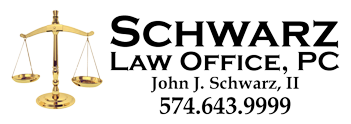MAKING THE DECISION
This is the third and final article in our series on Chapter 12 Farm Restructure (also see The Basics and The Process). As has been explained, Chapter 12 is part of the bankruptcy code that exists to give farmers a chance to restructure their farms. Had chapter 12 existed in the 1980’s, the number of farms going out of business likely would have been a lot less. As a young boy, I remember the 1980’s farm crisis. Most of you reading this article no doubt remember the difficulties of farming in that decade.
Current times in farming are no doubt difficult. Although some parallels with the current farm economy can be drawn to that of the 1980’s, at least interest rates are not 18% like they were in the 1980’s. However, at the end of the day, we still are faced with the fact that farm income has dropped over 40% since 2012. Also, we are still faced with the fact that for many producers the cost of production exceeds income from crop production. These are no small obstacles to overcome. Deciding when to seek Chapter 12 protection can be key to whether a viable plan under Chapter 12 can be generated or not.
As farmers, we are probably the most optimistic and resilient people around. However, forces much larger than us dictate whether our farms are viable or not. One bad year can make the difference between staying in business or not. Often, financial difficulties in farming have no bearing on the business decisions we make. Rather, it can come down to mere circumstances and even luck.
Abraham Lincoln, Ulysses S. Grant, William McKinley, and Thomas Jefferson all had to utilize some form of bankruptcy protection at some point.
In addition, as farmers, we tend to be very proud people. We think about how we will be viewed by our friends and neighbors if financial difficulties arise. We place a lot of emphasis on our reputation, which is fine, but none of this will make financial payments nor will it keep our farm in business. Keeping our farms in business during difficult times will require makings decisions that are financially sound rather than what feels good.

YOU ARE IN GOOD COMPANY
Writing the past two articles got me thinking as to what successful business people had to, at some point, seek bankruptcy protection. Starting with the highest office in our country, Abraham Lincoln, Ulysses S. Grant, William McKinley, and Thomas Jefferson all had to utilize some form of bankruptcy protection at some point. As did our current president. So, five people who were successful enough to become president of the United States needed bankruptcy protection at some point.
Some of the greatest entrepreneurs in this country also had to seek bankruptcy protection. The list includes Henry Ford, Walt Disney, Milton Hershey, H.J. Heinz, and P.T. Barnum. All of these individuals are ingrained in our country’s history as classic rags to riches stories. Without the protections of bankruptcy, it is doubtful the outcomes would have been the same.
…one has to wonder how many farms could have been saved by a more timely decision to seek protection.
My humble opinion is that knowing when to seek protection is something that should be admired, not frowned upon. For many, getting through the gambit of emotions when deciding to utilize chapter 12 is probably the hardest part of the Chapter 12 process. But, deciding to seek protection early on will likely ensure that the point of no return is not reached. Once the decision to seek protection is reached, as explained in the prior two articles, the process is rather straight forward and mechanical. Since Chapter 12 was created, one has to wonder how many farms could have been saved by a more timely decision to seek protection.
In closing, when contemplating whether to utilize Chapter 12 protection, a producer should focus on the business element of the decision. Human emotions such as pride, reputation, and otherwise should probably take a back seat. Simply stated, focus needs to be on keeping the farm in business. After all, if some of the most famous and successful people in the history of this country have had to seek protection, this says a lot about the benefits of the law, and shows that even the best of us may need financial protection at some point.
John J. Schwarz, II, is a lifelong farmer and farms with his family near Stroh, in Northeast Indiana and has been an agricultural law attorney for 12 years. He can be reached at 260-351-4440, our contact form, or visit him at www.farmlegacy.com.
These articles are for general informational purposes only and do not constitute an attorney-client relationship.
WE KNOW RURAL LAW
Reach out to us for your farm and rural legal needs. We can help.
ESTATE PLANNING
The number of viable farms in this country will be determined not by how successful the farming operations are in terms of yields, acres, prices, etc., but by how well current farmers plan to transfer their farming operations to the next generation. Learn more about Estate Planning.
FARM & GRAIN CONTRACTS
Anytime a farmer engages in business that relies upon the actions of another party, a written contract should be created. Without a written contract, if a dispute arises, the case usually will erode into a “he said she said” setting. Learn more about Farm Contracts and Grain Contracts.
AG LAW
Many people aren’t aware that there is such as thing as an Agricultural Lawyer. We specialize in Agribusiness, Ag Litigation, Probate & Trust Administration, and Farm Family Divorce issues. Learn more about agricultural legal issues.
USDA / FSA
The USDA and Farm Service Agency (FSA) administer numerous programs that are available to Indiana farmers. We have vast experience assisting our clients with issues pertaining to USDA/FSA programs and eligibility.

